T.M.J. DYSFUNCTION
Temporomandibular Joint Disorder (TMJD or TMD) or TMJ syndrome:
Symptoms and Treatment
-
-
The proper function of the TMJ is highly dependant on the balanced positioning of the cranium.
-
Postural distortions elsewhere in the body can perpetuate TMJ pain.
-
Asymmetrical posture can lead to asymmetrical wear and tear on the TMJ.
-
The National Institutes of Health recommends non-surgical treatment for TMJD whenever possible.
-
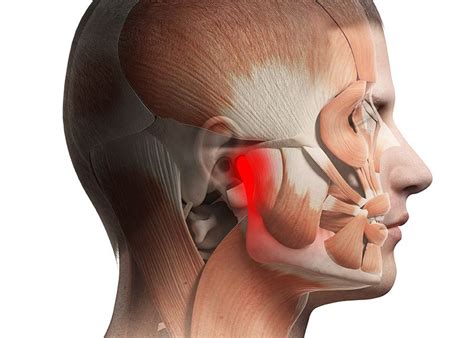
Clicking, popping and deviations in the movement of the jaw are common but only considered TMJ disorder when they are accompanied by pain. The proper function of the jaw depends on 2 complicated joints – the temporomandibular joints on either side of the head. The jaw is unique, compared to other joints in the body, as it is suspended from the rest of the cranium by ligaments and muscles. Because of this, the position and function of the TMJ is almost entirely dependent of the position and alignment of the cranium. Any deviations in the position of the head or distortions of the cranium itself can lead to temporomandibular joint disorder. My study of posture and the application of St. John Neuromuscular Therapy has lead to the conclusion that problems with the TMJ usually have their origin somewhere else in the body. Even in cases where TMJ pain is triggered by trauma or grinding of the teeth, postural distortion tends to be a perpetuating factor. Overall, the temporomandibular joint syndrome is an issue of postural distortion and needs to be addressed as such by looking at the body as a single functional unit.
As postural distortions promote improper movement of the TMJ, multiple things happen. First, the muscles that move the jaw develop a spasm/strain imbalance – some muscles are overly contracted while some are overstretched causing pain. This can lead to uneven pressures in the joints causing asymmetrical wear patterns in their structure. Muscles, tendons, ligaments, and cartilage can become weakened and deteriorate. Pain levels increase as these structures break down. In severe cases of temporomandibular joint disorder, the rounded portion of the jawbone that articulates with the rest of the cranium can wear away, changing the shape of the bone so that it no longer can move properly. Restoring alignment and function of the TMJ, even in more advanced cases, alleviates these pain patterns and further breakdown of the joint.
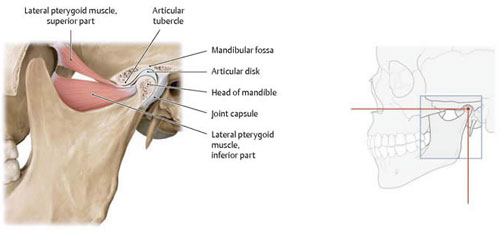
The National Institute of Dental and Craniofacial Research (NIDCR) of the National Institutes of Health (NIH) recommends that treatments for temporomandibular joint disorder should be reversible whenever possible. Treatments of this nature would include medications for pain, stretching exercises and movement therapies and stabilizing or repositioning splints. We have found that patients who are given these therapies have limited success as they tend to be focused on the function of the TMJ only. As stated above, underlying postural distortions must be eliminated if these therapies are to be successful in the long term. The St. John Neuromuscular Therapy treatment approach to correcting temporomandibular joint syndrome incorporates treatment directly to the painful areas of the jaw and head as well as to the imbalances of the pelvis, spine cranium that contribute to this dysfunction.
Significant time is spent treating the masseter, lateral and medial pterygoids & temporalis both external and internal. Increasingly, TMJ specialists are recommending non-surgical approaches to treating TMJD. Historically, the outcomes for patients receiving surgical procedures have not been good. Here again, the focus of the surgical procedure is specifically on the TMJ and does not address factors that caused the dysfunction in the first place. It can not be stated enough: the correction of postural distortion provided by St. John Neuromuscular Therapy is vital in successful treatment of temporomandibular joint disorder.
BEFORE
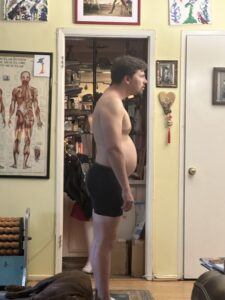
BEFORE
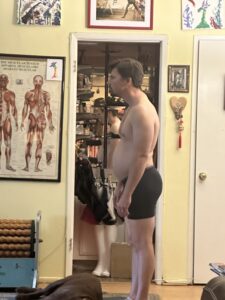
AFTER
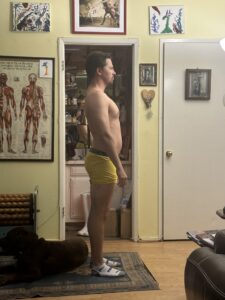
AFTER
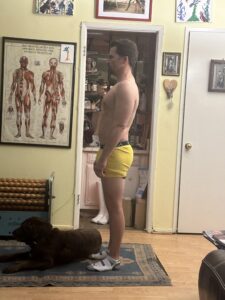
Highest grade and most potent CBD ointment available for treatment.
Call today to let me answer any questions you may have regarding TMJ dysfunction

